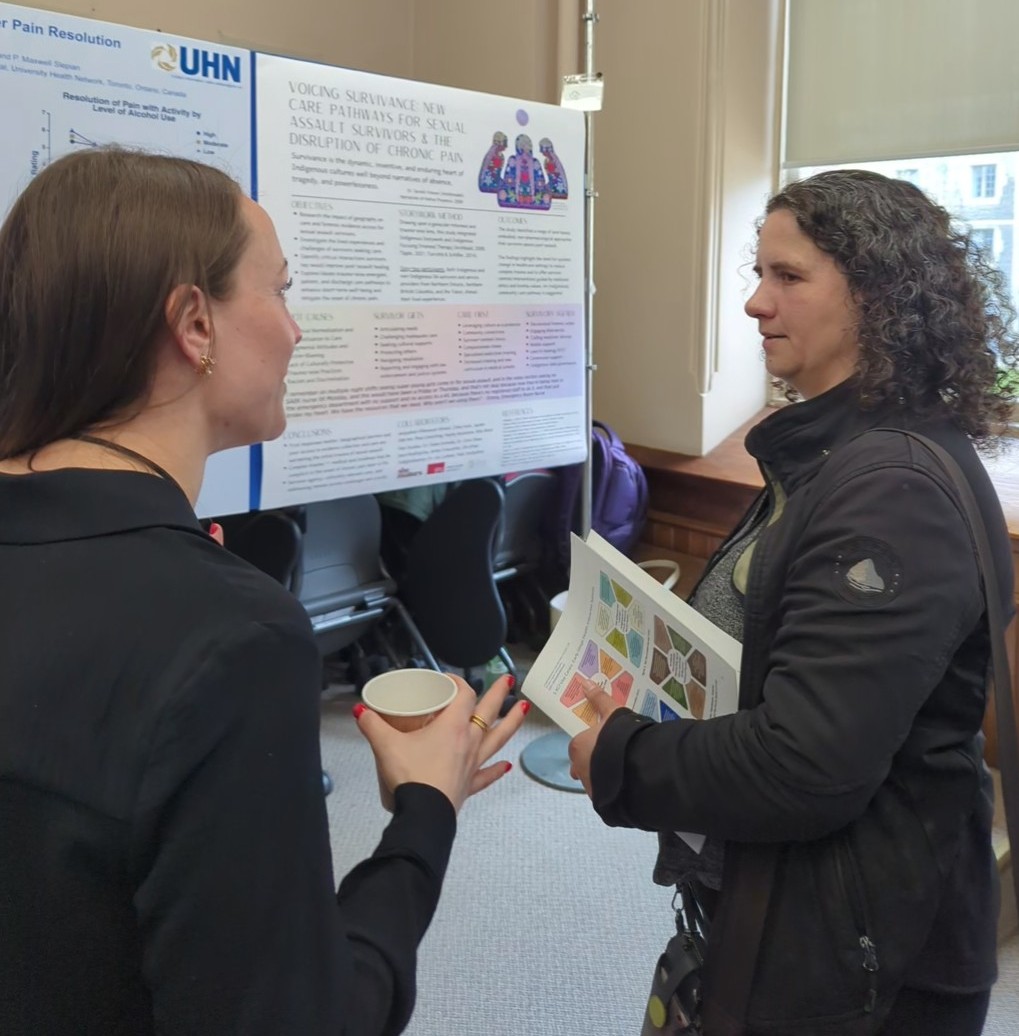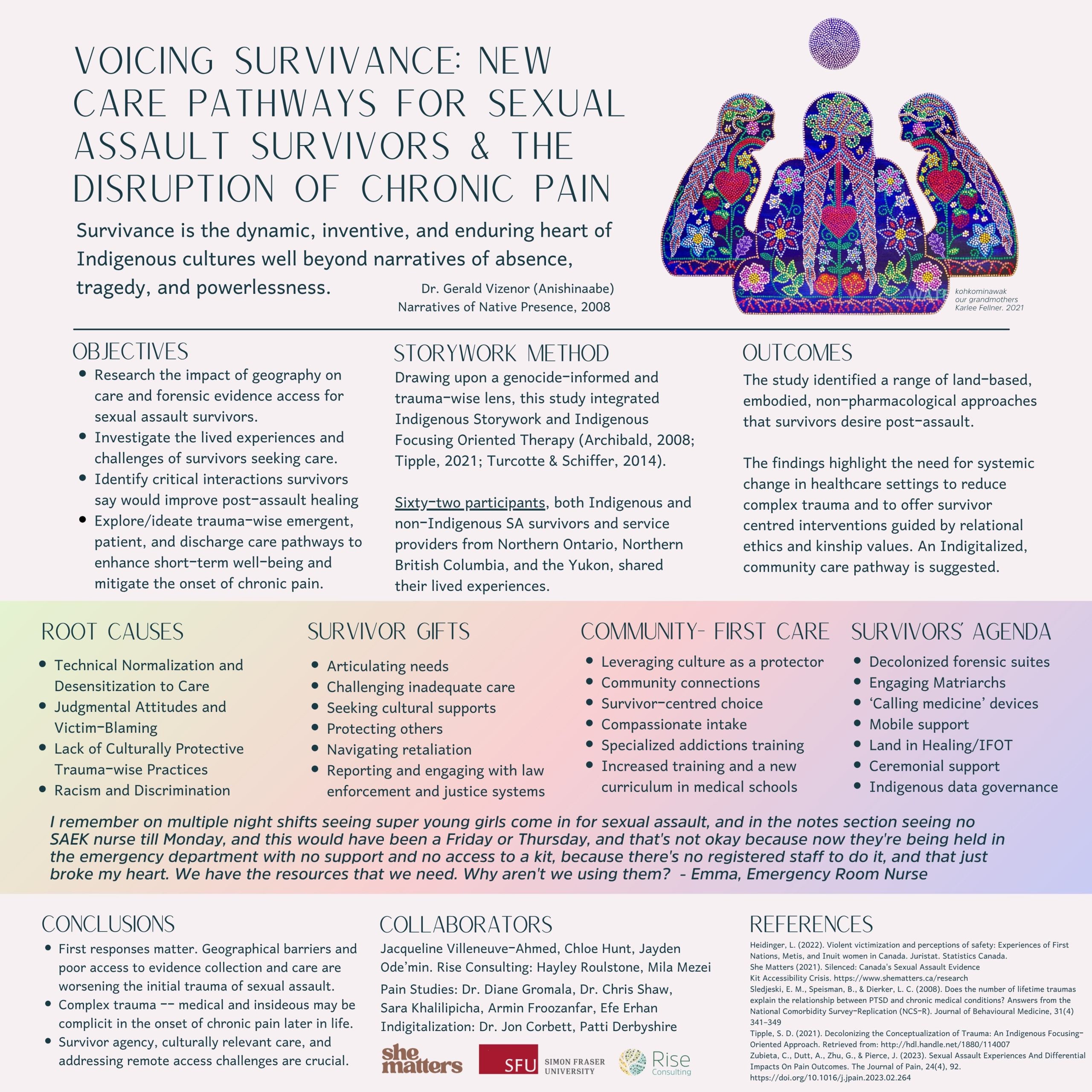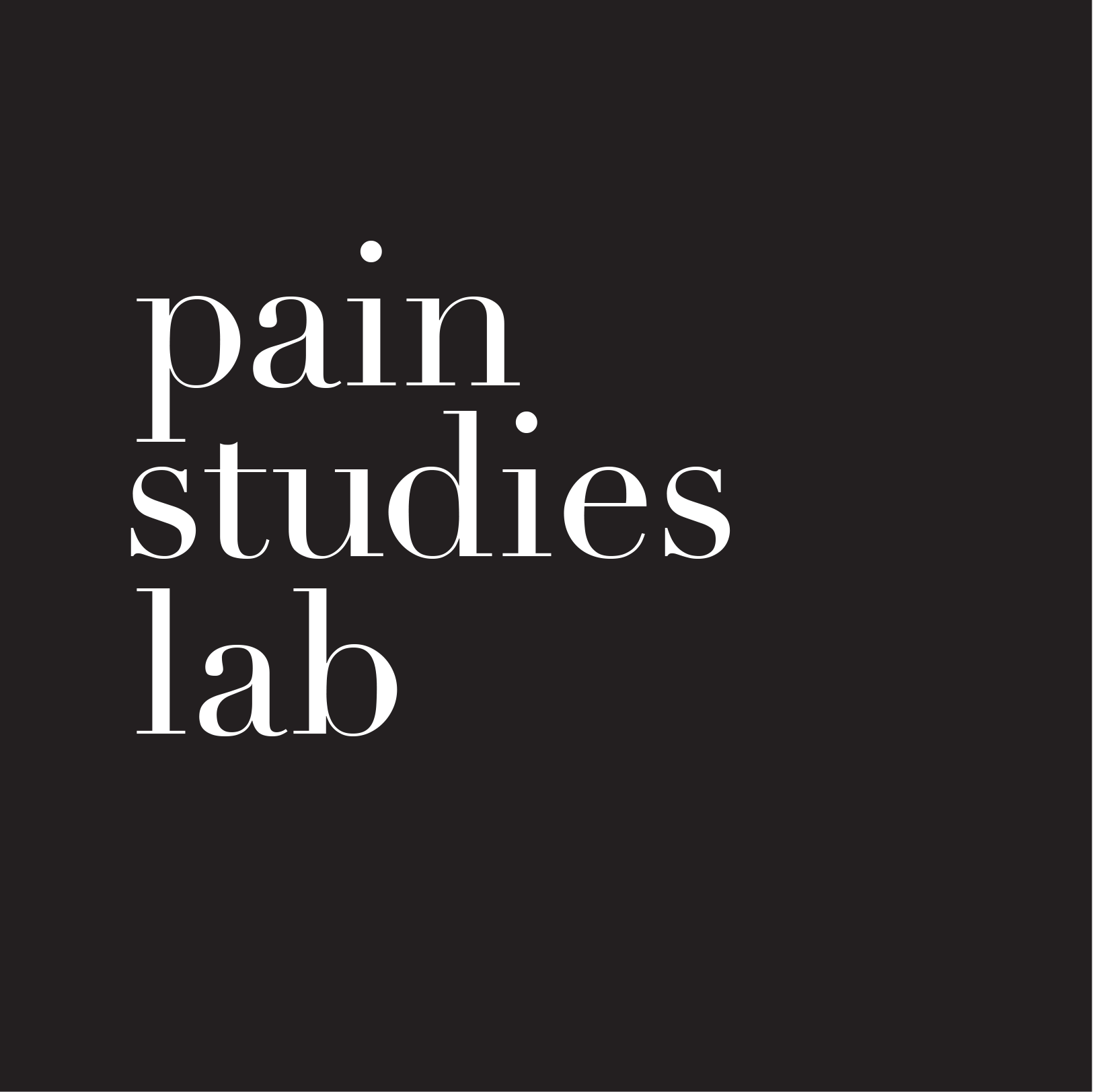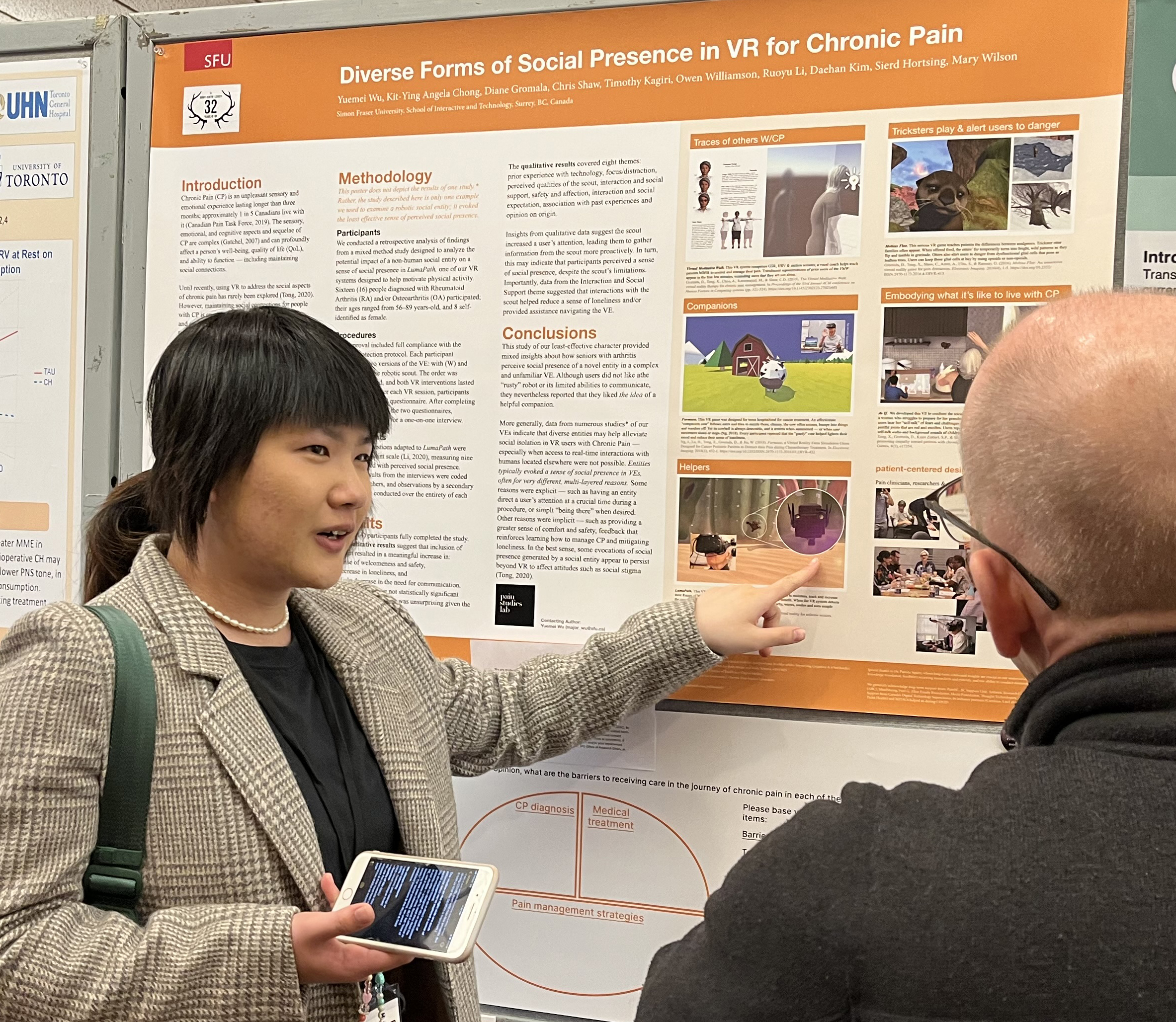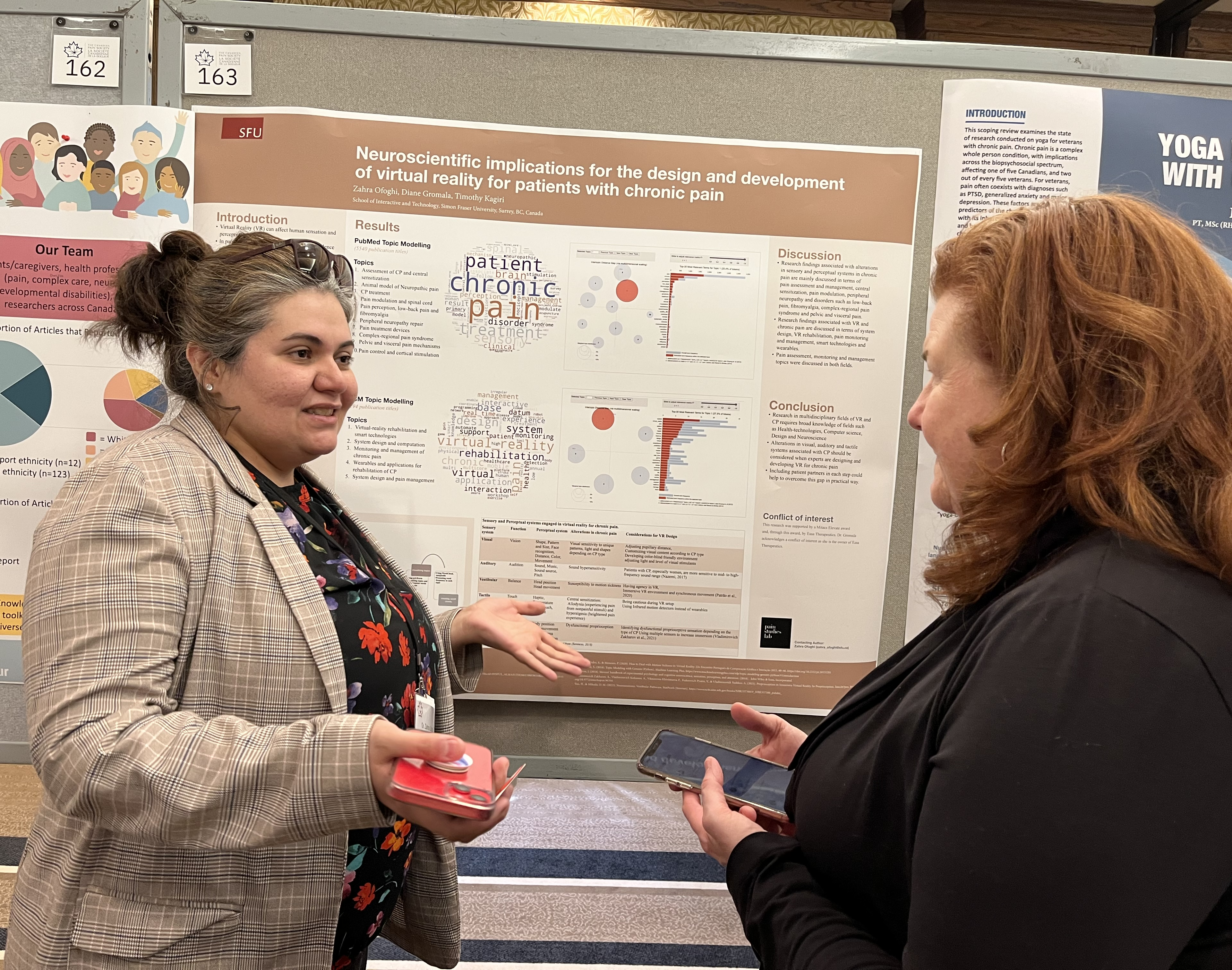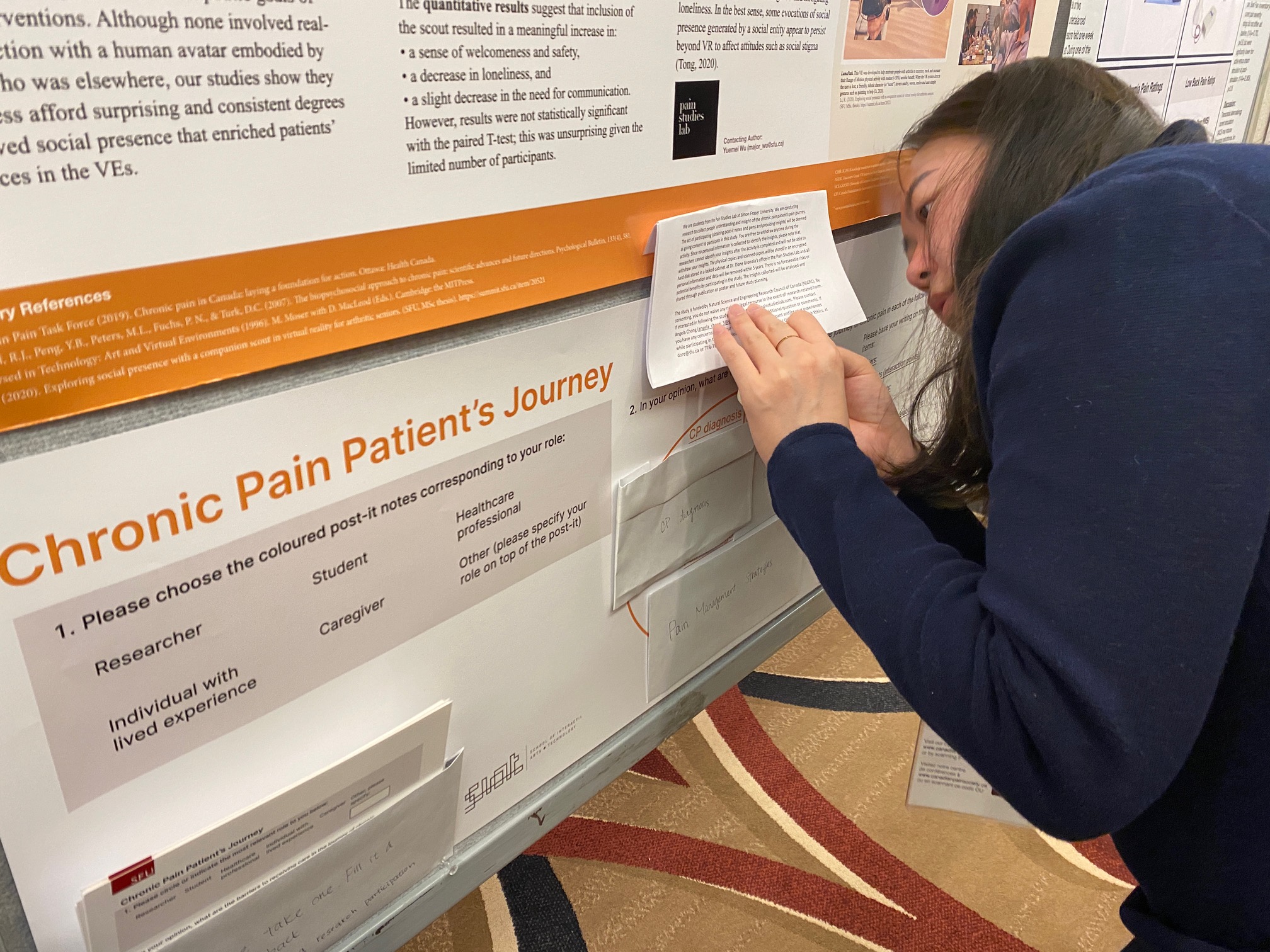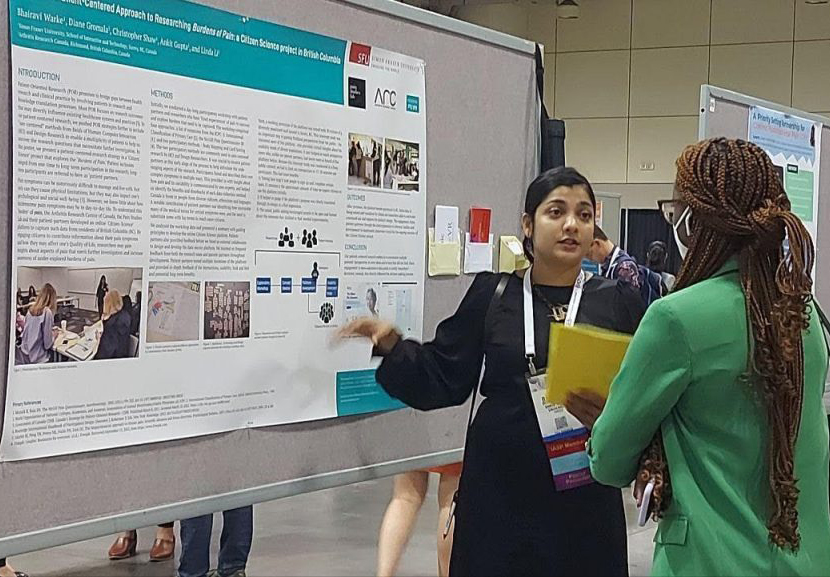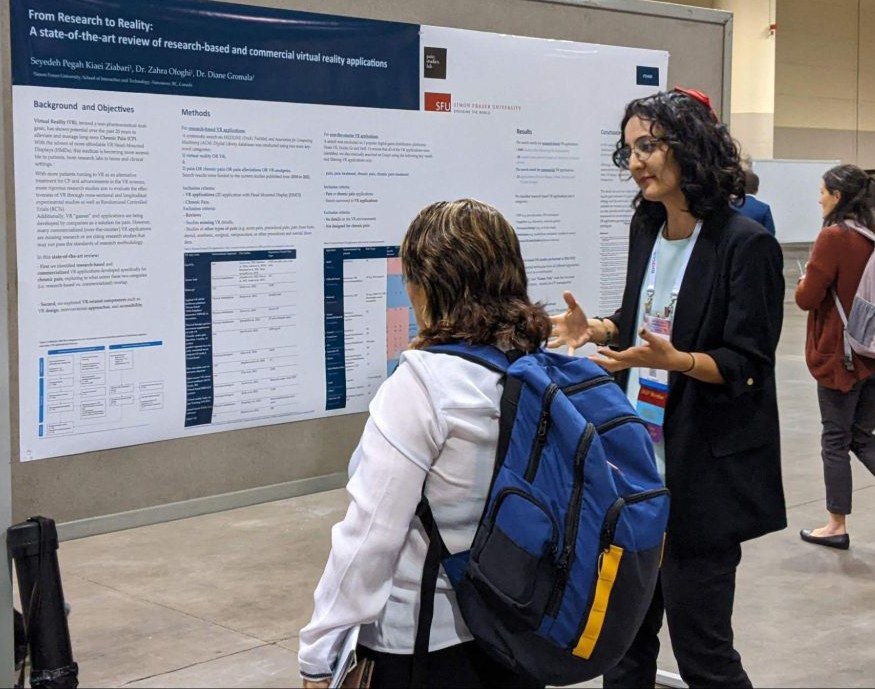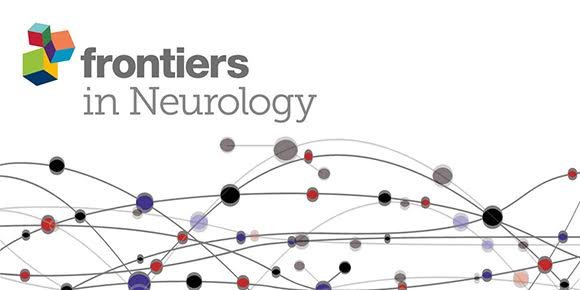Dr. Diane Gromala and Dr. Chris Shaw are collaborating with Dr. Deirdre Logan at Harvard’s medical school. The group is adding an immersive Virtual Reality (VR) component to a new program that treats Young Adults who live with chronic pain at Boston Children’s Hospital.
Researchers in the Pain Studies Lab — neuroscientist Dr. Zahra Ofoghi, Biomedical Engineers Armin Froozanfar and Sara Khalilipicha, and Computer Scientist Efe Erhan — have updated the lab’s Virtual Meditative Walk (VMW) for this purpose. Initially built and tested in 2011, the Virtual Meditative Walk has been consistently updated according to their on-going co-design work with patient-partners and their research findings.

The VMW integrates VR with biosensors, data visualization, and AI, all of which work together to help chronic pain patients learn to better manage their persistent pain via MBSR (Mindfulness-based Stress Reduction). It has been tested in multiple research studies in health research, computer science, and UXUI design. As it evolved, the VMW was continually tested in clinical and home contexts, and in short and longitudinal research studies.
Dr. Logan and Dr. Gromala met at a Consensus Meeting at Sick Kids in Toronto. There, with ~30 pediatric pain experts, they co-developed guidelines that researchers are encouraged to follow as VR is quickly being adopted for clinical use. At the recent vMED conference at Cedars Sinai Hospital in Los Angeles, for example, presenters demonstrated that the number of research papers about VR has grown in the past 10 years to over 30,000 papers worldwide.
Given that the opioid crisis has not abated, such “non-pharmacological” methods of managing chronic pain, such as VR, are promising. Similarly, the use of VR to treat PTSD (post-traumatic stress disorder) by the Veterans Administration (VA) has been so successful that the VA recently announced its widespread adoption in the U.S. (Bailey et al.), from an initial 5 sites to 147 sites.
Because MBSR is a skill that takes regular practice to learn, the researchers are exploring the feasibility of using VR in the program at Boston Children’s Hospital. They are also exploring any specialized needs that Young Adults may face if they use VR or MBSR on a regular basis. The pilot study phase is already underway.
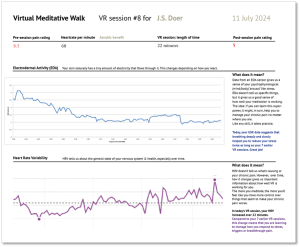
- To access the 20+ peer-reviewed, evidence-based research papers published about the VMW, please refer to painstudieslab.com/publications
- Bailey AL, Kirsh S, Rawlins C, Persky S, Clancy C. Early Scaling of Immersive Technology within the Veterans Health Administration. NEJM Catal Innov Care Deliv. 2024 Apr;5(4):10.1056/CAT.23.0356. doi: 10.1056/CAT.23.0356. Epub 2024 Mar 20. PMID: 39474356; PMCID: PMC11521419.
